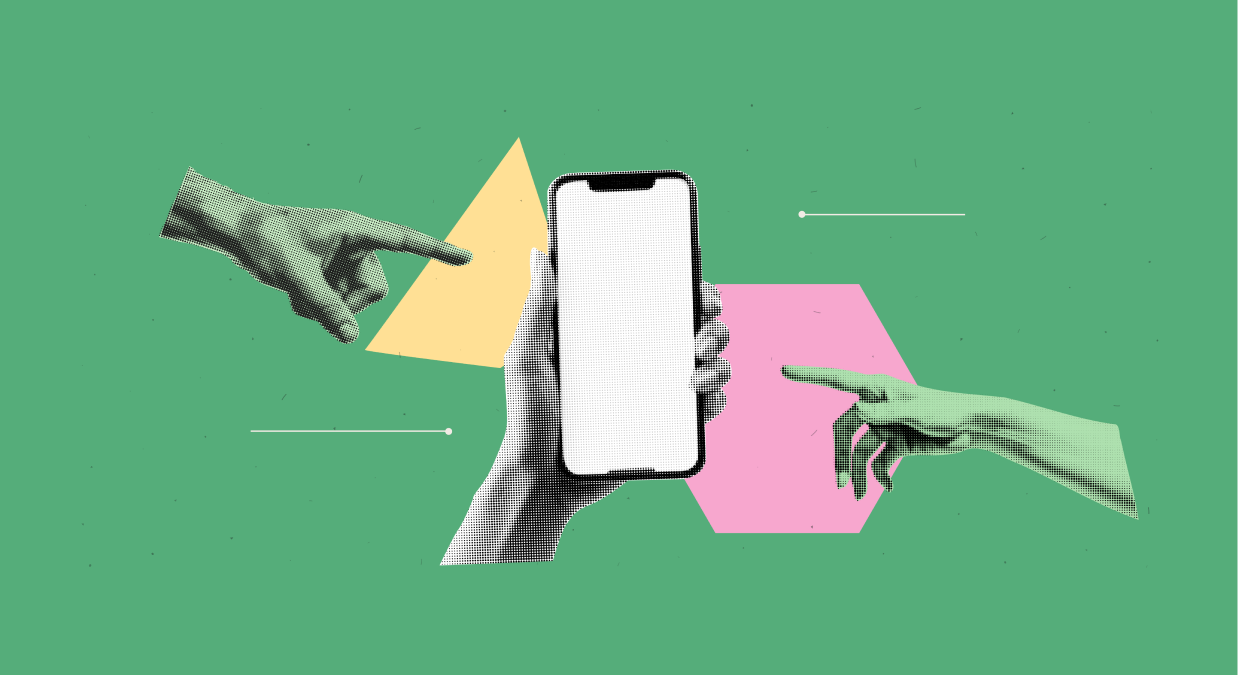by Sneha Usakoyal
4 minutes
Mobile Marketing In Pharma: Reaching Customers On Their Mobile Devices
In this post, we'll explore the key considerations for industry professionals moving forward.

Mobile fever has taken the world by storm, becoming a significant trend! Technological advancements have given us phones that can do far more than their basic predecessors. You don't need to own a high-end smartphone; even more affordable models can now access the internet.
Mobile marketing refers to a digital marketing approach that utilizes multiple channels to engage with the target audience on their modern devices such as smartphones, tablets, and other mobile devices through websites, social media platforms, email, SMS and MMS, and apps.
Mobile marketing is completely changing the way individuals are engaging with the brands! Therefore, mobile marketing has become essential for the companies as well as the healthcare industry to reach out to their audience.
And you must know that the healthcare industry has been of zero exception to this trend. Mobile technology has fundamentally transformed healthcare marketing. In this post, we'll explore the specific ways this sector has changed and discuss the key considerations for industry professionals moving forward.
The Rise of Mobile Technology in Healthcare
Mobile technology has become an integral part of everyday life, with smartphones and tablets being ubiquitous. According to a study, there are around 6.84 billion smartphones in the world, a number expected to grow significantly in the coming years. This widespread usage of mobile devices presents a unique opportunity for the pharmaceutical industry to reach patients directly through mobile channels.
mHealth or mobile health applications, telehealth services and wearable devices are a few key elements of this digital shift. These types of technologies tend to facilitate real-time health monitoring, improved patient-provider communication and personalized health interventions! The convergence of these types of technologies along with mobile marketing strategies is creating an effective method for the pharmaceutical companies.
What Are The Benefits Of Mobile Marketing In Pharma?
Here are a few advantages of mobile marketing in the pharmaceutical industry:
a) Enhanced Patient Engagement: Mobile marketing enables pharmaceutical industry & companies to engage with their patients in a more personalized way. With the help of interactive apps and personalized communication, patients tend to feel more connected and supported, which can lead to better health outcomes.
b) Improved Adherence and Health Outcomes: By giving out timely reminders and educational content, mobile marketing helps in improving medication adherence and simplifies the process of overall health management. Patients are more likely to follow their treatment plans & know about the next proceedings, leading to better clinical outcomes.
c) Wider Reach: Another great benefit of implementing mobile marketing is that it allows pharmaceutical companies to reach a wider audience, including underserved populations who may have limited access to traditional healthcare services. Mobile technology can bridge the gap, providing essential information related to health & hygiene, and support to those in need.
d) Cost-Effective Solutions: Mobile marketing has been proven to be a cost-effective way to disseminate information and support patients. When compared to traditional marketing methods, mobile campaigns can be more efficient and offer a higher return on investment.
Mobile Marketing Strategies To Implement In Pharmaceutical Industry
Here’s a step-by-step mobile marketing strategies that can be implemented in the pharmaceutical industry for better outcomes:
1) Educational Content & Health Information
It can be witnessed that pharmaceutical companies are increasingly utilizing mobile apps and websites in order to provide their patients with educational content related to medications, treatments and diseases. All these platforms tend to deliver a convenient way for patients to access reliable health information, which can empower them to make informed decisions about their health in the future.
2) Reminders About Medication & Adherence Programs
One of the most faced challenges in the healthcare sector is to ensure patient adherence to prescribed medication regimens. There are a few mobile marketing solutions, such as reminder apps and SMS notifications, that help patients take their medications on time, thereby improving adherence and health outcomes. For example, mobile applications can send personalized reminders on the basis of the patient's prescription schedule, reducing the risk of missed doses.
3) Telehealth & Virtual Consultations
The COVID-19 pandemic is known to accelerate the adoption of telehealth services, highlighting the importance of remote healthcare delivery. Mobile marketing in this context encompasses promoting telehealth services via targeted campaigns, making sure that patients are aware of and can access virtual consultations. This approach not only helps in enhancing convenience for patients but also helps healthcare providers manage their time and resources more efficiently.
4) Patient Support Programs
Pharmaceutical companies are leveraging mobile platforms to provide patient support programs that involve resources for managing chronic health conditions, tips for healthy living, and mental health support. These types of programs often feature interactive elements like chatbots and live support to assist patients in real-time, creating a more engaging and supportive experience.
5) Data Collection & Personalized Marketing
Mobile devices are powerful tools for collecting and studying patient data, which can be utilized to tailor marketing efforts to individual needs. By analyzing data related to patient behavior, their preferences, and treatment responses, pharmaceutical companies will be able to develop personalized marketing campaigns that resonate more effectively with their target audience.
Mobile Marketing: Challenges & Considerations!
While mobile marketing offers numerous benefits, it also comes with its own set of challenges, specifically in the pharmaceutical industry where regulatory compliance and the privacy of every patient is paramount! Pharmaceutical companies must navigate through complex regulations governing advertising and patient data protection, making sure that their mobile marketing efforts are both ethical and compliant.
Moreover, there is a requirement to address several important issues such as the digital divide, making sure that every other patient, regardless of their technological proficiency or access to modern devices, can enjoy the benefits from mobile health initiatives. Therefore, pharmaceutical companies must focus on designing inclusive mobile marketing strategies that cater to a diverse range of patients & healthcare providers as well.
In Conclusion
Today, mobile marketing can be seen to revolutionize the pharmaceutical industry by facilitating patient engagement, providing personalized health support and improving medication adherence. The integration of mobile technology and the use of mobile marketing strategies into the healthcare sector promises to deliver more innovative and effective ways to improve patient care. Pharmaceutical companies that embrace this digital transformation will be well-positioned to lead the industry into a more connected and patient-centric future.
In addition, the pharmaceutical industry, traditionally seen as a heavily regulated sector, is undergoing a digital transformation! Central to this evolution is mobile marketing, which leverages mobile technology to enhance patient engagement, improve adherence to treatment regimens, and foster stronger connections between healthcare providers and patients. As mobile device usage continues to soar globally, the pharmaceutical industry is increasingly recognizing the potential of mobile marketing to drive innovation and improve health outcomes.




